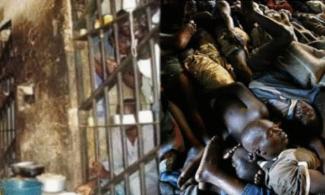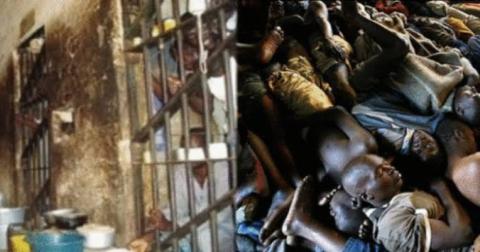
Samira Daoud, Amnesty International's Director for West and Central Africa, in a statement said detention centres are fast becoming risks to public health especially given the general lack of health care and sanitation.

Amnesty International has called on authorities in Sub-Saharan Africa to take urgent action to prevent the spread of Coronavirus by releasing prisoners of conscience, reviewing cases of pre-trial detention, and guaranteeing access to healthcare and sanitation products in all facilities.
Samira Daoud, Amnesty International's Director for West and Central Africa, in a statement said detention centres are fast becoming risks to public health especially given the general lack of health care and sanitation.
She said, "In many countries across the region, a high proportion of those in detention are there just for peacefully exercising their human rights. As well as being the right thing to do, releasing prisoners of conscience immediately and unconditionally would free up space in these facilities and help to protect prisoners and staff from the virus.
"Amnesty International is also calling on authorities to consider early, temporary or conditional release of older prisoners and those with underlying medical conditions, as well as women and girls who are in detention with dependent children or who are pregnant.
"Across Sub-Saharan Africa, pre-trial detention remains widely used excessively and as a tool of punishment. As at June 2019, there were 28,045 people detained in prisons in Madagascar which have a total national capacity of 10, 360. More than 75 per cent of the 977 boys detained were in pre-trial detention.
"Children and adults accused of petty crimes in Madagascar are equally forced to stay in overcrowded and unhygienic prisons for longer than the legal term of pre-trial detention. In Senegal, before the release of detainees announced in March 2020, the country had 11,547 people held in 37 prisons with a total capacity of 4,224 detainees. Similarly, Burundi, whose prisons have a capacity of 4,194 people, had 11,464 detainees by December 2019, of which 45.5% were in pre-trial detention.”
Amnesty International said leaders must act fast to release those who shouldn't be incarcerated in the first place to prevent a public health crisis.